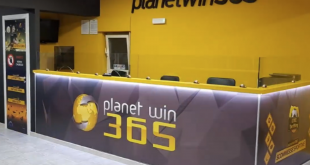As the nation prepares for England’s first World Cup semi-final since Italia 90, England fans frantically hope that the anxiety of the Colombia game isn’t replicated and Southgate’s side win in 90 minutes.
However, should England’s fate see them head to spot kicks tonight, we take a look at the challenges that are presented to a trader as they look to price the dreaded penalty shootout.
SBC spoke to Head of Compilation at Abelson Info, Jeevan Jeyaratnam who revealed his belief that a shootout is far from a lottery, as well as looking at some of the key factors in pricing penalties.
SBC: In general, how difficult is it to price which side will win a penalty shootout?
Jeevan Jeyaratnam: A common misconception is that a penalty shootout is a “lottery” with both sides having an equal chance. This is not far from the truth, however, if we breakdown the mechanics it is more nuanced than that.
There are a couple of approaches to pricing a penalty shootout, the first, a more accurate but laborious process, involves using player parameters to determine the likely more experienced, and therefore successful penalty takers in each team- a “penalty prowess” player/team parameter. Generally, the team with better players are going to be favourites for the match, this team would also be slightly more likely to win a penalty shootout. Therefore, pre-game shootout odds should reflect that superiority, albeit if the game has gone all the way to penalties there is far less variance between the two teams’ chances. Most firms won’t be going to the detail of analysing each player’s parameters. So, method two, derived from the match supremacy, allows us to use the 50-50 idea as a benchmark, before adding a small deviation to allow for the superiority of one side over another.
If we look at bet365’s prices, at 90mins, prior to the England v Colombia shootout, we can see England were regarded as slight favourite to win a shootout (3.10 v 3.25).
At the end of the extra-time period the prices had snapped to 1.90 v 1.90, but a closer look at the Asian Handicap prices shows England at 1.875 (53.33%) v 1.975 (50.63%) for Colombia. This is as we would expect to see given that England were judged to have the superior team at kick-off. It is small but significant difference. The reason for the variation in pricing what is essentially the same market is likely due to margin and odds ladders, and possibly different supplier feeds. The Asian prices were bet to 103.96% while the top of the page “To Win Shootout” prices were bet to 105.2%. Always shop around!
SBC: In the Croatia versus Denmark game, we saw Modric miss a penalty in the game before stepping up to take one in the shootout, can in-play penalties have an impact on pricing for a shootout?
JJ: Invariably the team’s regular penalty taker is an experienced and competent individual, able to handle the pressure situation that comes with a penalty. Bearing this in mind, we wouldn’t expect to see this affect a player taking another penalty in the shootout. Of course, if we were updating individual player parameters in real-time, there would be an additional data point for both taker and keeper, but honestly these would have little impact on the pricing.
SBC: Additionally, in that shootout we saw dominant performances from Schmeichel and Subasic, how much can a strong keeper sway a sides’ odds before heading into a shootout?
JJ: Of course, a better than average goalkeeper is a benefit, and if we were allocating player/team “penalty prowess” parameters, this would be reflected. It is fair to say that most firms/supplier feeds will set up their penalty shootout prices as such;
As a starting point we know that 75% (1.33) of penalties are scored and 25% missed (4.00). That sample is going to be mainly comprised of experienced penalty takers. So, to score the 1st pen, 1.30 (76%), to miss, 3.40 (29.41%) is a likely offer. The same prices would probably be used for the 2nd pen. After that we’d likely see some degradation in the quality of the taker, the offer might look like this; to score 1.33 (75%), to miss, 3.25 (30.76%). The “to score” price would continue to fractionally slide the further the shootout went.
SBC: For the Russia Spain game it was clear for long periods, Russia were playing for penalties, can the moral victory of getting to penalties increase a smaller teams’ odds of winning a shootout?
JJ: Psychologically I’m not sure of the impact of this, it isn’t something we’d worry too much about from a compilation perspective. I’d actually argue the opposite, in that the smaller teams may feel they have already achieved their goal before embarking on the arduous task of winning a shootout.
SBC: Can the body language of players have any impact at all on the odds for a penalty shootout?
JJ: We all recall times when we’ve said, “he doesn’t fancy this, I think he looks like missing”, and when that hunch is confirmed, we remember it. What we don’t recall with such clarity is the times that the player goes on to prove us wrong and score. This is evidence of confirmation bias and really has no bearing on price. If a player has agreed to step up for a penalty then there’s every chance he feels confident enough to convert it. There is, of course, extra pressure on penalties that must be scored in order to avoid defeat, likewise, those whose success can mean victory. At a very detailed level this could affect pricing but realistically, with margins, it isn’t something firms should be worrying about at this time.









